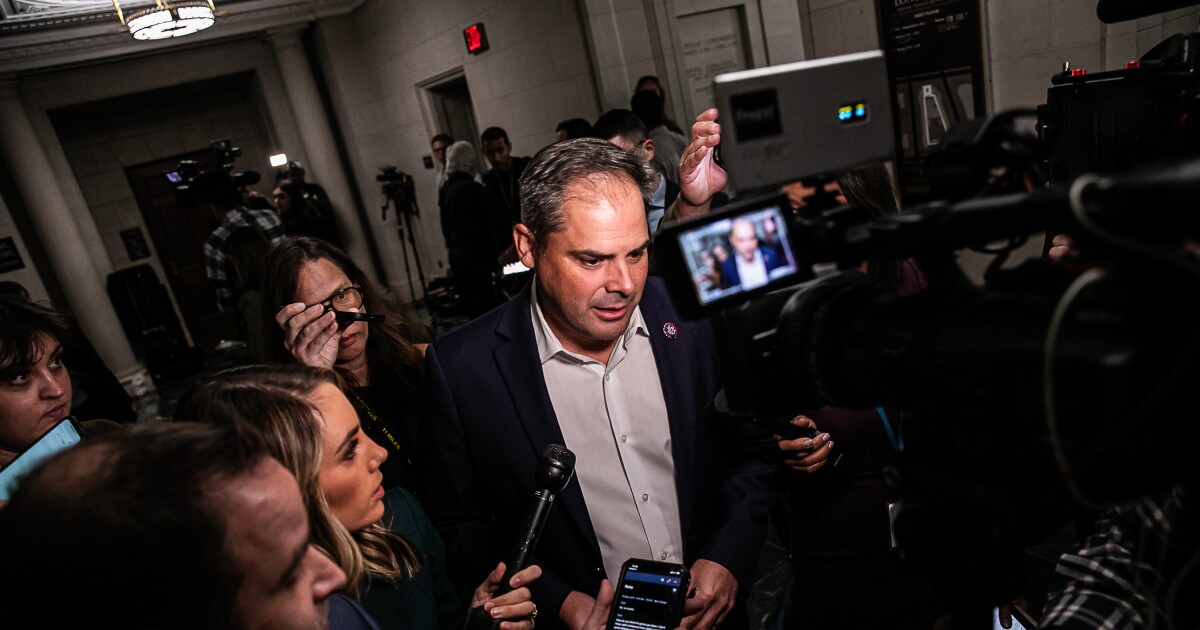‘Frankenrail’ bill would ban federal funds for California’s high-speed train
3 min read

California Republican Rep. Mike Garcia last week unveiled a bill that would block federal funds for the state’s controversial high-speed rail project.
“After 15 years and billions of your hard-earned tax dollars spent, California’s high-speed rail has delivered zero results,” said Garcia in a statement announcing
Republicans have
The total cost of the nation’s only publicly-funded high-speed rail project is now estimated at $128 billion, and faces major funding gaps. The full route’s shortfall is as high as $99 billion, and the initial Merced to Bakersfield segment, with an estimated $35 billion price tag, faces a potential $7 billion gap,
Bloomberg
In late May, Rep. Sam Graves, R-Mo., chair of the House Transportation and Infrastructure Committee, and Sen. Ted Cruz, R-Texas, top Republican on the Senate Commerce Committee,
The administration so far has awarded the rail line $3.3 billion in federal grants,
The California High Speed Rail Authority has a goal of
Separately, the authority named a new CEO last week. Ian Choudri comes from infrastructure design firm HNTB Corporation, where he was senior vice president and served as a national strategic advisor to several rail, transit and transportation agencies, including the San Bernardino County Transportation Authority. He has more than 30 years experience in the transportation sector and has also worked on high-speed rail in France and Spain, the authority said in a release. He replaces Brian Kelly, who had overseen the project for six years and announced his retirement in January.
California Gov. Gavin Newsom praised the hire. “He’s taking control at an important moment for this project,” Newsom said. “This is about transforming ground transportation for the world’s fifth largest economy, while showing the nation what is possible with enough vision and will, and bringing a cleaner transportation future to California.”
Also last week, Newsom, Choudri and others celebrated Caltrain’s new electrified train fleet that converts the Caltrain corridor between San Francisco and San Jose from diesel to an electric service. The new electric trains will reduce travel times and prepare the corridor to accommodate the high-speed train in the future. Construction began in July 2017. Full passenger service is set to begin next month.







